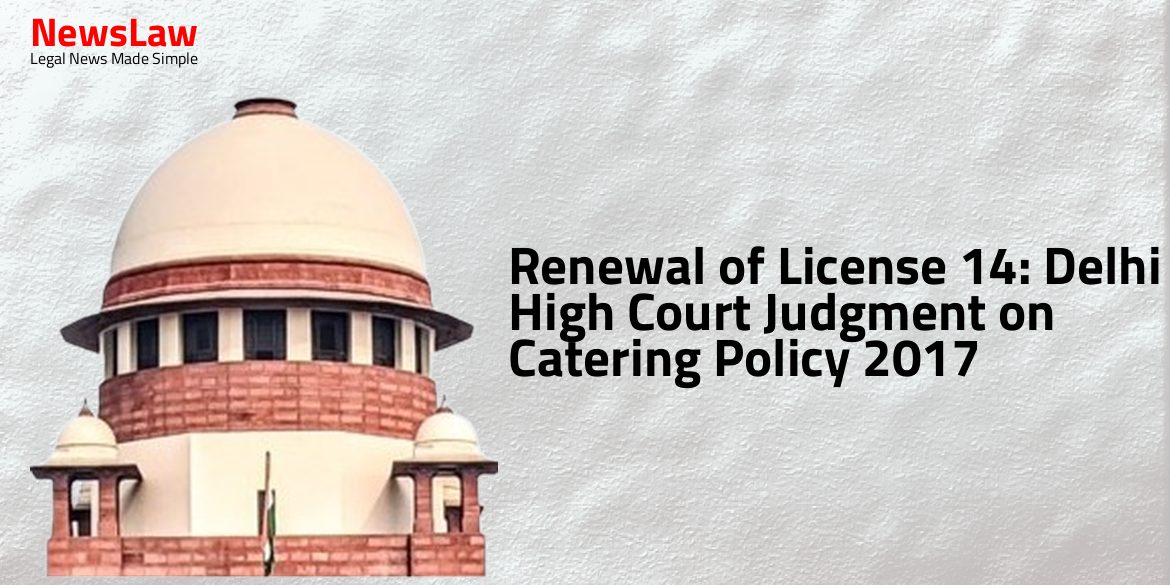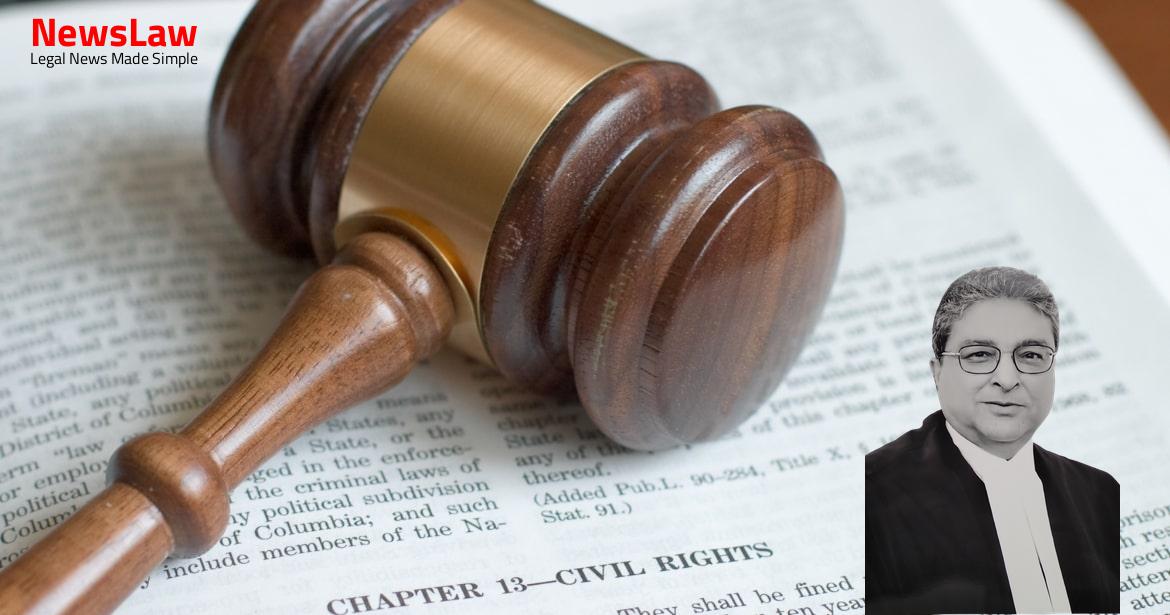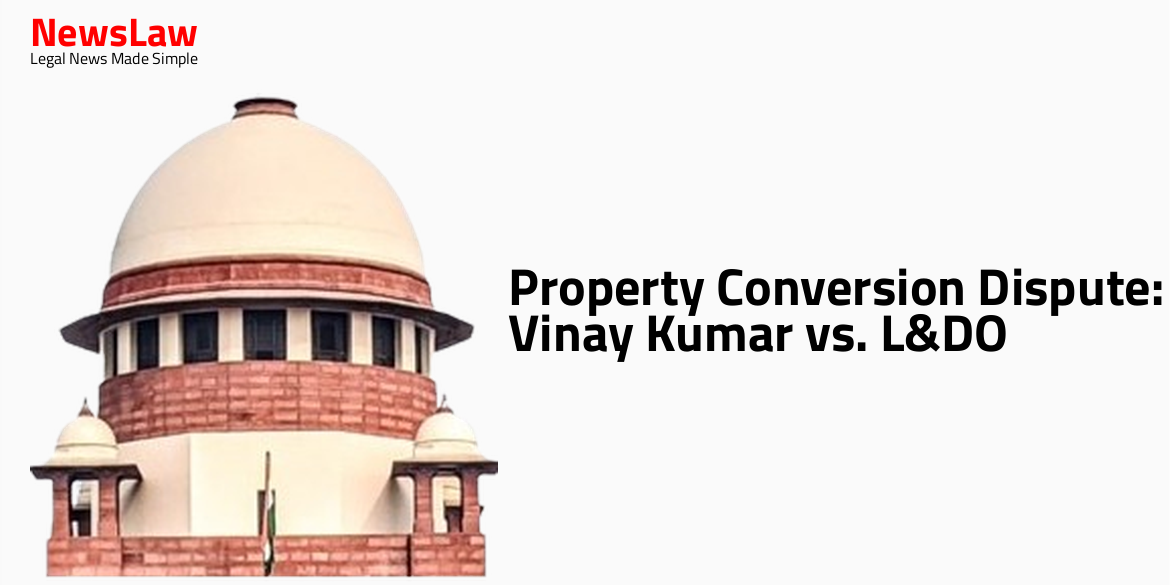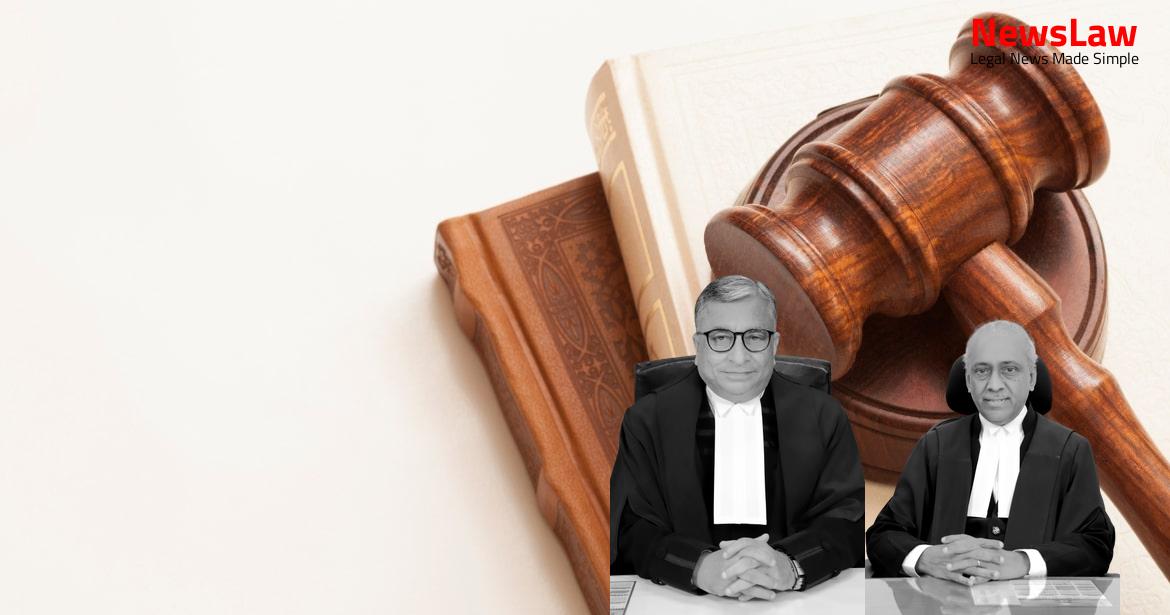The Delhi High Court recently delivered a significant judgment on the renewal of License 14 in relation to the Catering Policy 2017. The case involved arguments put forth by the petitioners regarding the clauses of the policy and their implications on their rights. This blog post dives into the details of the court’s ruling and its impact on the catering industry, shedding light on the legal intricacies surrounding the renewal of licenses in this specific context.
Arguments
- Petitioners argue that clause 11 of Catering Policy 2017 violates Articles 14, 19(1)(g) and 21 of the Constitution by denying license renewal and forcing competition against larger entities.
- They rely on legal precedents like Olga Tellis v. Bombay Municipal Corp, Consumer Education & Research Centre v. Union of India, South Central Railways case, and Vendors Cooperative Society v. Union Of India to support their argument.
- Petitioners claim they signed the license agreement under coercion, economic duress, and due to an uneven bargaining position between them and the railways.
Analysis
- The court discusses the jurisdiction to entertain the writ petitions based on the territorial limitations and location of the concerned authorities.
- The court emphasizes that the railways’ action of not renewing licenses is not violative of Article 14 of the Constitution.
- It is advised to implement the Force Majeure clause for catering and vending contracts affected by the lockdown.
- The court highlights the importance of not granting perpetual license renewals, as it would go against the equality of opportunity guaranteed in the Constitution.
- Different reservation sub-quotas are outlined for various categories including minorities, physically challenged individuals, and women.
- The court points out that the licensees cannot claim an indefeasible right to perpetual license renewals.
- The court analyzes various clauses in the Catering Policy 2017 and how they impact the renewal and extension of licenses for catering units.
- The court mentions that renewal options were not impugned initially by the petitioners and terms of licenses explicitly state non-renewability, hence challenging these at the end of the license tenure is not feasible.
- It is reiterated that a license does not confer an interest in the property and does not create a vested right for renewal.
- The applicability of the Force Majeure clause due to the Covid-19 lockdown is discussed in extension of license periods.
- The Court’s territorial jurisdiction to entertain a writ petition is based on the averments made in the petition, regardless of their truth.
- Paragraph 1744 of the Indian Railways Commercial Manual is said to be the root cause of the punitive demands being challenged in the petitions.
- Challenging the validity of paragraph 1744 without going into its merits, considering it was issued by the Railway Board in New Delhi.
- The doctrine of estoppel by election is a rule of equity and is triggered by a breach or threat to breach a fundamental right.
- The petitioners’ claim of being compelled to accept a contract condition due to unequal bargaining power is deemed untenable.
- Contract award, whether by a State or a private party, is considered a commercial transaction with its own terms.
- When interpreting laws related to contracts, courts may engage in a creative process involving uncertainty in executory contracts.
- A challenge to the validity of a policy decision is entertained only if it infringes fundamental rights guaranteed by the Constitution or statutory rights.
- Mutual rights and liabilities in contracts between the State and entities are governed by contract terms and contract-related laws.
- The State does not ensure profits for licensees in such contracts; there is no guarantee against incurring losses.
- Entering into contracts through tenders is voluntary on both sides, and a party cannot blow hot and cold or approbate and reprobate in such transactions.
- Individual license agreements and Catering Policy 2017 include an arbitration clause for grievances or damages.
- Dismissal of petitions due to lack of merit.
- Petitioners granted 3 months to vacate catering units for transition to alternative vending arrangements.
- Transition period to start from the extended license period or the date of the judgment, whichever is later.
- Payment of usual license fee required during the transition period.
Decision
- The present petitions are held to be maintainable.
- Renewal of License 14 is addressed in this part.
- The renewal of License 14 is deemed relevant to the case.
Case Title: MOHAMMAD MUKHTAR Vs. UNION OIF INDIA & ORS. (2024:DHC:4476)
Case Number: W.P.(C)-5183/2024



